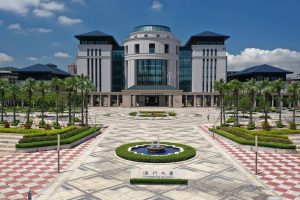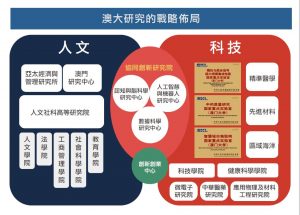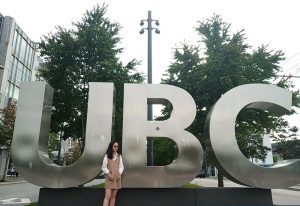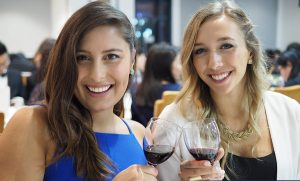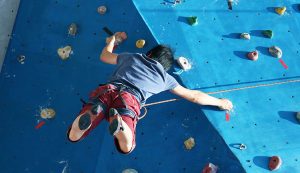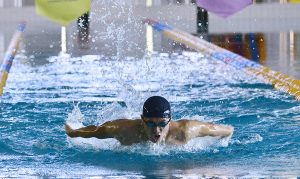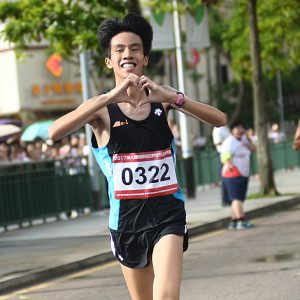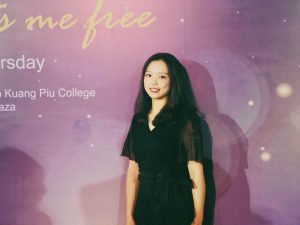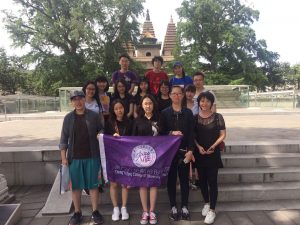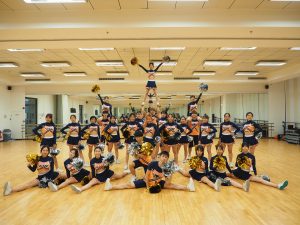What do Nobel Prize winners such as Robert C Merton, Chen-Ning Franklin Yang and Mo Yan, have in common? The answer is: They have all accepted honorary doctorates from UM.
If the fact that these titans have accepted an honorary degree from UM shows their recognition of the university, then the outstanding faculty team has more immediate relevance to students, as it guarantees that students receive the best possible training in their chosen fields of study.
Facts and numbers speak louder than words.
Facts first.
80 per cent of the faculty members at UM come from outside Macao. Many of them hold prestigious titles such as member of Academia Europaea (Academy of Europe), fellow of the Royal Academy of Engineering, fellow of the Royal Society of Chemistry, fellow of the Institute of Electrical and Electronics Engineers, member of the Portuguese Academy of Sciences, fellow of the American Society for Metals, fellow of the American Association for the Advancement of Science, fellow of the American Physical Society, fellow of the American Society of Civil Engineers, fellow of the American Educational Research Association, fellow of the American Psychological Association, president of the IEEE’s Systems, Man, and Cybernetics Society, fellow of the Hong Kong Academy of Engineering Sciences, and Chang Jiang Scholar Chair Professor (Ministry of Education).
Then let’s look at the stories told by the numbers.
According to statistics from the Web of Science, the number of high-quality academic papers published by UM scholars increased from 190 in 2010 to around 1,800 in 2019, with citation frequency exceeding 24,000.
In some fields, UM is now ranked among the top in the world. For instance, at the 2019 IEEE International Solid-State Circuits Conference, UM was ranked second in the world in terms of the number of papers accepted at the conference, next only to Intel.
There are currently three state key laboratories in Macao, and all of them are at UM.
In terms of international ranking, UM is growing rapidly on world stage. In the Times Higher Education (THE) World University Rankings 2020, it is ranked in the 301-350 bracket, with a global ranking of No 9 in International Outlook; in the THE Asia University Rankings, it is No 37; in the THE Asia-Pacific University Rankings, it stands at No 60; in the THE Young University Rankings, it occupies the 52th position; in the Quacquarelli Symonds (QS) World University Rankings 2021, it is ranked No 367. In Essential Sciences Indicators (ESI) rankings, it is among the top 1 per cent in eight subjects, namely Engineering, Chemistry, Computer Science, Pharmacology & Toxicology, Materials Science, Clinical Medicine, Psychiatry/Psychology, and Social Sciences, General.
UM has established partnerships with more than 250 higher education institutions in 33 countries and regions, and offers joint or dual degree programmes with some of these universities. UM students can choose from over 170 universities around the world for overseas studies.
UM also has Asia’s largest residential system to help students achieve well-rounded development.
But no discussion of well-rounded development is meaningful if there are no adequate facilities to support the students’ need for exercise and play. Fortunately, you can find a dizzying array of sports facilities at UM that will, unfortunately, destroy all your excuses for not staying active. These facilities include an Olympic-standard swimming pool, a sports complex, an archery range, a football field, basketball courts, squash courts, sports climbing walls, and gym rooms, to name but a few.
What is it actually like to study at UM? Let’s hear what the students have to say.
Ip Seng Tou, a second-year law student says, ‘UM provides many opportunities and helps me discover my interests. The fact that the sports facilities, faculties and residential colleges are all on campus makes life very easy.’
Ji Xinran, a second-year student in the Faculty of Business Administration, says: ‘The biggest draw for me are UM’s international ranking and its ACCA-accredited accounting programmes. The accreditation makes me qualified for a maximum of nine exam exemptions with the ACCA. I also love that English is the main teaching language here. Another cool thing about UM is its mode of education which is very similar to the Western mode. It also provides many exchange programmes to broaden the students’ horizons. ’
Huangfu Wenqing, a third-year student in the Department of Government and Public Administration, fondly recalls her experiences at Tsinghua University under an exchange programme jointly organised by UM and Tsinghua. She says, ‘I benefited greatly from the programme. I was mainly responsible for liaising with government officials and local students in order to organise a workshop. In the process, my communication skills improved substantially.’ She loves the exchange and internship opportunities provided by the university and the volunteer projects organised by the RCs.
Cheang Sin U, a second-year English education major, is an active participant in the activities organised by her RC. She says, ‘I have made a lot of friends through the cheerleading squad, and I feel very honoured that they elected me as the cheerleading captain. We won the championship in this year’s cheerleading competition, which made all the hard work worthwhile.’
UM is now accepting applications for undergraduate programmes for the 2020/2021 academic year from mainland students. Graduating high school students in 31 provinces, cities, and autonomous regions in mainland China are all eligible to apply. The deadline for applications is 27 July.
Important note: Applying to or being accepted by UM does not affect the applicant’s chance of being accepted by mainland universities.
To learn more about admission-related information, please visit
https://reg.um.edu.mo/admissions/nonlocal/mainland/news/?lang=zh-hant

